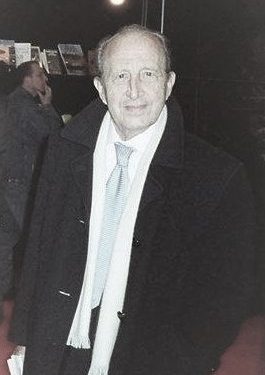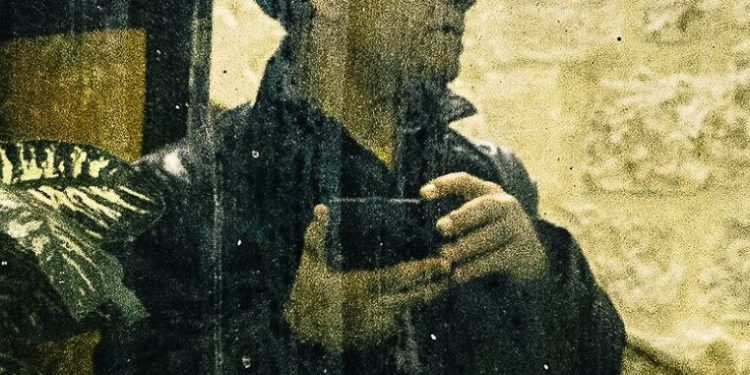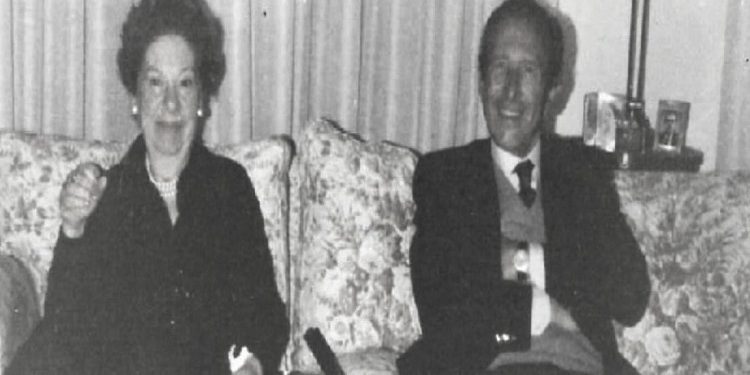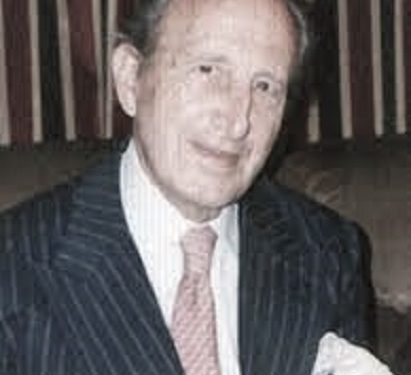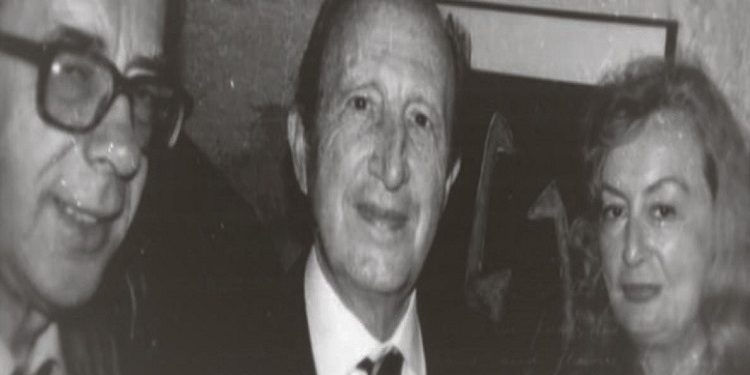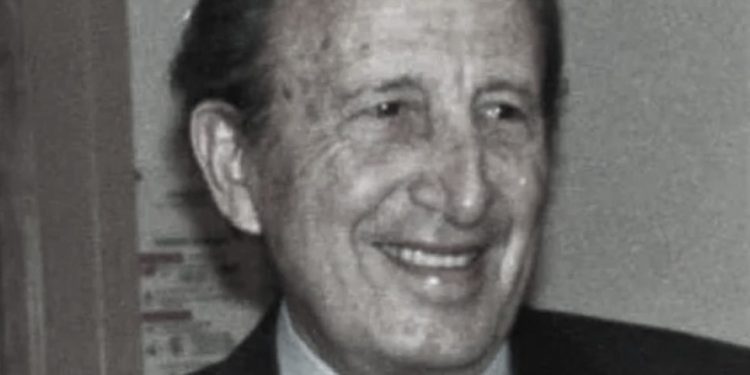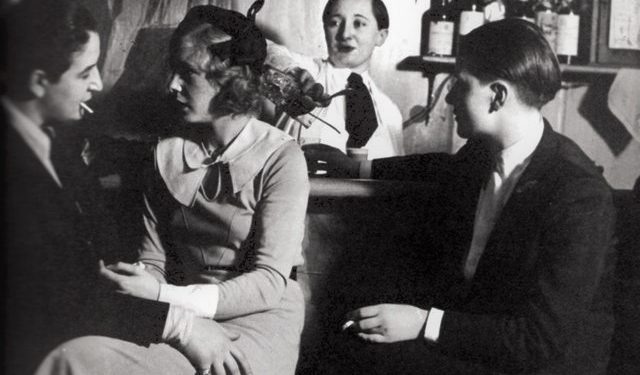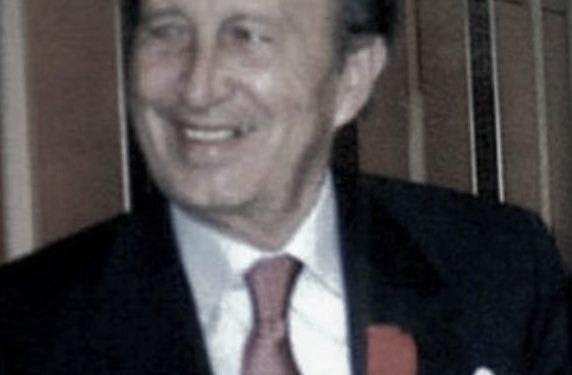By Vasil Qesari
Part Eighteen
Memorie.al/ The overthrow of the great totalitarian edifice in Albania would leave behind, not only the change of the system, accompanied by lots of hopes, mirages and cries of happiness but, unfortunately, also many wounds, dramas, victims, dust, milk and disappointments from the most different. Ten years and more after that event, which deeply shook society, completely overturning many previous codes, rules and concepts, people still continue to ask themselves such questions as: What really happened in society Albanian, during the last 50 years of the dictatorship? How was it possible that the system managed to warp everything? Why did people accept it? What was the totalitarian logic of the transformation of society and the individual? How were the structures of totalitarian mechanisms conceived and functioning: propaganda, secret police and the exercise of the ideology of terror? How did it happen that among all the communist countries of Eastern Europe, Albania was considered an exception or a special case? Why did Enver Hoxha remain blindly, fanatically loyal to Stalin until the end, turning the country into a prison where violence, fear and purges continued until the end of the 80s? Why was the country so insanely isolated, locking people up between bunkers and barbed wire? Why, then, did all the above phenomena happen…?! The book “Post-scriptum for Dictatorship” does not claim to provide definitive answers to the above questions, or the complexity of the reasons that brought and maintained the totalitarian power in Albania. Nor is it a complete, deep and comprehensive fresco of the life and suffering that people experienced during that system. Its author, perhaps, has the merit that together with the retrospective view of the totalitarian period as well as the zeal of a passionate analyst, he has tried to turn his head back once again, to give not only his personal memories and opinions, but also to return once again to the vision of that era with the simple philosophy of preserving the Memory and supporting the Appeal to never forget the well-known maxim, that…the corpse’s nails and hair continue to grow even after death! Ten years or more after the great revolution, the book in question has current value and we hope it will be appreciated by the reader because, as an Albanian researcher also says… the greatest evil that can happen to a people comes when he fails to analyze his own past. An amnesic people are forced to be constantly neuropathic and repeat their painful experiences…!
Continues from last issue
JUSUF VRIONI OR THE ELEGANT ‘GHOST’
“… Can it happen in today’s Europe, in our contemporary history, experiences and fortunes as dazzling, as rich, dramatic and full of surprises as the life of that man…? With a childhood ala – Nabukov e “golden youth”, accompanied by many years of studies, which then cultivated in him a strong spirit and character, capable of facing the most complicated situations, including the Stalinist labor camps “ala – Solzhenitsyn…”!
TRANSLATOR BANNED
When, in 1970, it was learned that Ismail Kadare’s novel “The General of the Dead Army” was published in France, the event created a sensation not only in intellectual circles, students, regular and passionate readers of literary books, but even to many ordinary people. I told you, it’s a great novel! – You tell me emphatically, my fellow faculty member, Francophile P.S. It has within it the atmosphere of Shakespeare’s tragedies and the thrilling spirit of Kafka’s books. You have to see! His echo outside will not be few…! The news of the publication by Albin Michel, one of the most popular and prestigious French publishing houses, became known through the literary weekly Drita. The announcement, although short and without details, was commented on in various ways. Meanwhile, literary criticism maintained an almost silent attitude, while the daily press was quick to describe it as an affirmation of socialist art abroad. For many intellectuals, the publication of Kadare’s novel, far away, in the City of Lights, (as well as the fact that, finally, an Albanian writer would be read in Europe), awakened feelings of national pride.
For other individuals, the news in question was accompanied by the comforting thought that the publication of the book in Paris, at last, would remind the world that Albania was still alive and that the old literary traditions had not ended. Some, like our case (a group of three or four students), wished and prayed that the message of the event in question would be completely different.
– Oh god! – Said S.Y. from Shkodra – Ndofta, this news is a good omen! Not only for literature, but also for our lives!
In fact, our mind was working elsewhere. It was good for us to assume that, perhaps, the publication of the novel could be a signal of openness, if not to the West as a whole, at least to France. (Fortunately, Enver was not formed, like many communist leaders of the East, in Stalin’s homeland, but precisely in France, where he had spent several years of his youth. That was the reason why, often, in reports and speeches, he liked to used, words and expressions from the language of that country). In the meantime, perhaps surprisingly, at that time, no one thought to ask who was the translator of ‘General…’ in French. Only among some students of literature, the interest to learn about the unknown translator of Kadare, had appeared in an insisting form. And the reason is simple. It did not mention who was the translator of the novel. Which one, did you take Kadare to Paris? Usually in each edition, the name of the translator was not missing. Why, this time, he was anonymous?! To such insistent questions, the lecturer of the Literature of Socialist Realism, answered by raising his shoulders and saying that he knew absolutely nothing…!
However, the mystery was soon revealed.
An assistant-pedagogue of French, during an intimate conversation with some students, had told something short and clear about the name of the biography of the translator in question. Word then spread throughout the faculty as quickly as the reaction from the dean’s office. According to the youth secretary of our course, who also provoked a special meeting for political clarification, the translator of Kadare was someone whose name was not worth putting in his mouth. In short, a person who had been sentenced to prison for political issues. And, even worse, pinjoll of Vrionas…! (A rich family from Berata, whose name had been fixed in our minds since childhood, when we had learned in history textbooks that the Vriona Bejlers were bloodthirsty and oppressive; in short, among the most typical representatives of Albanian feudalism).
After 8 years, Kadare’s second novel would be published in France. The news was again given by the newspaper “Drita”. Short and detailed. But, this time, the special thing was that the information was accompanied by a photo of the cover of the publication in French. At the top of it, in very large letters, the author’s name was written, accompanied by the title of the novel in French: Le Grand Hiver (The Great Winter). A little below, in smaller letters, it was written: Traduit en français par Jusuf Vrioni (Translated into French by Jusuf Vrioni). At the bottom of the cover, it read the name of the publishing house: Fayard.
It was the first time that the Albanian reader learned from a newspaper strictly controlled by the Party, the name of Kadare’s anonymous translator. But how was it possible for that forbidden name to become public? Was it just a mistake? I mean an aberration of the editor-in-chief? Or, the negligence of the editor-nezhuran in the printing press or haste in the xingograph? Or neither, nor the other…! The mind made you fantasize and many other things. (What if, that gesture, was a deliberate forgetfulness for his rehabilitation…?! (Meanwhile, in close circles he found out that Jusuf Vrioni was the main translator of Enver Hoxha’s speeches and ALP materials- and in French). But, as it was learned later, the above guess did not hold. In fact, the serious mistake was made by the editor-in-chief of the newspaper, who had not seen the xingo plate on which it was stamped at all the photo together with Vrion’s name. Of course, the measures taken against him were strict and the scandal was talked about up to the highest instances of the Party.
Many more years would pass, when the number of Kadare’s books translated into French would increase, so that the phantom name of Jusuf Vrioni became known. Of course, it was only about certain circles, because officially, he was constantly censored and the right to publish his name was not only not recognized, but absolutely forbidden.
One day in October 1980, a fellow journalist, who during a service had traveled with the propaganda secretary of the Party Committee, told me that he had overheard a secret conversation about Jusuf Vrioni. More or less, the event that was talked about was this: An official of the Central Committee of the Party, you had called him to a special meeting and you had handed him a copy of the book Khrushovians, published in French. Initially, Jusuf Vrioni, surprised by the unexpected meeting with him, did not hide his concern. “Open, open! See the note on the first page!”, the official had told him in a soothing tone. With trembling hands, Vrioni had lifted the cover. On the first page of the book, with his own autograph, Enver Hoxha congratulated him, personally, for the work done as a translator…!
My colleague’s story, in addition to the feeling of surprise, made me happy. First, because I had heard it discussed and talked about Vrion’s skills as a translator. And, in addition, I personally thought that his work on the translation of Kadare’s creativity was of great value, especially for the recognition of Albanian literature abroad.
And, finally, knowing his social origins as well as the fact that he had been a political prisoner, I hoped that, in some way, that clemency gesture of the dictator could also be a kind of signal to soften the class war. Perhaps, a look with different eyes, more tolerant, towards those few intellectuals with a bad biography, who, although crushed by the years spent in prisons, did the work of Jusuf Vrioni, that is, they translated to make a living.
JUSUF VRIONI CONFESSIONS…!
Surprisingly, and after the fall of communism in Albania, the silence about Kadare’s translator continued. For the general public, the Vrioni mystery continued to remain undiscovered. Even though in the pluralistic press of the time, the subjects, events and memories about the forbidden characters of the totalitarian era occupied whole pages, the Vrioni ghost, you could not enter the sensations of the Special Columns. Several more years would pass before the master of translating Albanian into Moliere’s language decided to speak for himself, to narrate the scenes of his life. Yes, this would not happen in Albania, but abroad, in France.
May 1998.
I was in the Mollat of Bordeaux bookstore, when (as I had a constant reflex), I was taking a casual look at the new publications from the former communist countries of the East. My gaze flashed over a string of titles and then stopped in shock at one of them. Was what I saw real? Yes! The ghost Vrioni, finally, had decided to confess…?!
I was holding his book of memories in my hands. Over 300 pages in French. In them was written the passionate story of an Albanian, who experienced the hardships of contemporary Europe. The life of a man, actor and victim of a harrowing drama developed in the champion country of totalitarianism. At the age of over 80, Jusuf Vrioni had decided to confess. To finally give answers to the mystery of his life full of vicissitudes and surprises. For this, apparently, the reason for the publication of his memoirs in France, which was done by Eric Faye.
Intellectual, publicist and well-known Parisian writer:
In April 1990, while I was in Tirana for a series of interviews with Ismail Kadare, I was introduced to his translator, a 75-year-old “guy”. During our meeting, in the “Dajti” hotel café, I immediately felt that I was dealing with a man whose life story was quite special. Over time, a sincere and deep friendship was born between us. So, when Jusuf Vrioni proposed to me to help him organize the manuscripts with memories from his life, I did not hesitate at all, but I set to work with great desire. Putting his memories on paper, I often asked myself: Could it happen in today’s Europe, in our contemporary history, human experiences and destinies, as dazzling, rich, dramatic and full of surprises as that man’s life? With a childhood like Nabukov’s “golden” youth, accompanied by years of long studies, which then cultivated in him a strong spirit and character, capable of facing the most complicated situations, including Stalinist labor camps “ala – Sollxhenicin”.
… And then, that drag and then, the rise in a life that he had not chosen himself, and with which he had to fight day by day, until he managed to become known and appreciated, thanks to the universe of literature. This is an achievement, too late to feel happy, accompanied by a lot of memories and pain for the lost years…!
Jusuf Vrioni was born in Corfu in 1916. His father, Iliaz Vrioni, was prime minister of Albania twice: in the government created by the Lushnja Congress in 1921 and then, a few months before Fan S. Noli’s “Democratic Revolution”, on 1924. After the triumph of Legality, Ahmet Zogu appointed Vrion as the all-powerful minister of Albania in Paris, so the whole family settled at 11 bis, avenue Victor Hugo. In the city of Lumière, the life of little Yusuf, 9 years old, took on new magical dimensions and spaces. Enrolment, together with his brother, at the lycée Janson-de-Sailly, integration into school and Parisian life, entertainment, roller-skating, sports competitions, readings, vacations in Saint-Tropez, Bretagne and Loire, – all this made him discover and experience the beauty of a new world, completely unknown until then.
Years go by without understanding. Here, among the entertainments and youthful passions, suddenly, a family drama. At the age of 16, he experiences a rather serious loss. On March 17, 1932, his father died. Being the Grand Officier du Légion d’honneur, Vrioni is accompanied with special honors. His body is buried in Albania, while the family decides to stay in Paris. The wound closes quickly and the boy dedicates himself to the passions of his age, especially music, literature and entertainment. His favorite authors…? Proust, Mauriac, Montherlant, Gide. The entertainment…? In selected society. In Villa d’Este among jazz orchestras. At the Hotel de Caux, where he met the famous Coco Chanel, designer and creator of the famous Chanel 5 perfume, etc.
“The end of the 30s was something wonderful for me. It often happened to me to wake up in the middle of the night and say to myself: Oh God? What a miracle it is to live here! Those were also the most beautiful years of my life…”!
In the fall of 1938, he enrolled in the Faculty of Law and Political Sciences. Meanwhile, the atmosphere of a new war in Europe is felt more and more every day. March 1939. Germany invades Czechoslovakia. Newspapers write that Mussolini’s invasion of Albania is expected in days. Indeed, on April 7, Italian troops land on the beach of Durrës. The next day, Yusuf and his brother decide to return to their homeland. As members of a well-known and influential family, he and his circle are seen favorably by Italians, and there is no shortage of offers to serve the new government. The brother is appointed to work in the Ministry of Foreign Affairs of the Italian Kingdom, and Yusuf goes with him to Rome, who wants to continue his half-abandoned studies in France.
Life in the Italian capital seems to be a continuation of that of Paris. Visits, feasts and new friendships among the golden Romanian youth. With Edda Ciano, Mussolini’s daughter, on holiday in Sestriere. With Susanna Agnellin, in the grounds of the Albergo dei Duchi. With Gioia Marconi, daughter of the famous Guglielmo Marconi, winner of the Nobel Prize in Physics. With Luchino Visconti, at that time the assistant director of the famous French cinematographer, Jean Renoir.
With Anna Magnani, the great actress of Italian cinema…!
“I felt special adoration for the people I had known. But the life of a parasite in such mundane environments, of course, often provoked a feeling of humiliation in me, because the amusements, in essence, brought me only superficial pleasure. I felt that I had to deal with something more important, but how, where and when, I didn’t know. That state of mind, those thoughts and guilty conscience, did not last long. One day, a close friend told me: Yusuf! Excuse me for asking, but what are you doing here? Don’t you think that your place is to be in Albania? And it was precisely during the summer of 1943 that I finally decided to return to my homeland. Maybe, there, I could deal with something. There is talk of publishing a newspaper…”!
Vrioni returns to Tirana leading a relatively safe life, as he says, but in a state of almost guilty passivity.
“I hung out with some friends who, like me, had studied abroad and were not engaged. We met together almost every day and spent the time discussing at the Tennis Club or at the Café “Sahati”, near the mosque. Meanwhile, on November 29, 1944, the partisan government formed in Berat arrived in Tirana. The following year marked a period of waiting for Albania. The Communists began to implement the “velvet glove” policy. The spirit of a certain “tolerance” could be seen everywhere. However, in April 1945, a large trial against the “collaborators” took place, which ended with about 20 executions. Many others were shot on the spot, accused of having denounced the invaders, bases or resistance guerrillas. Meanwhile, the word came out that in secret, the People’s Protection Guard, led by the organizational secretary of the Koçi Xoxe Party, and had started the purges…”!
In that atmosphere of fear, anticipation and suspicion, it seems that his past and family origins are not taken into account. He believes that he is not on the list of suspects. Even, surprisingly, Hysni Kapoja himself calls him to his office and informs him that he was appointed a member of the Sports Committee of the Anti-Fascist Youth Union. So apparently, no doubt, nothing dangerous. Jusufi also goes to Belgrade with the Albanian Tennis team. Afterwards, he started friendship with members of the British, American and French Military Mission in Tirana. (One of them, a French paratrooper officer, to whom he had confided his doubts and fears about what might happen to him in the future, offered to help him by giving him a military uniform and taking him by ship from the port of Durrës to France).
“His proposal blew my mind. My mother was not against me leaving. Even, he also prepared a kind of belt for me, where he had hidden dozens of gold coins, which I would put around my waist when I left. She insisted that I leave Albania, to escape the threats that were still vague towards us. In fact, from day to day, the dangers were becoming more and more visible even though, still, during the summer of 1945, she lived with the euphoria of liberation and victory over enemies”. Memorie.al
The next issue follows




